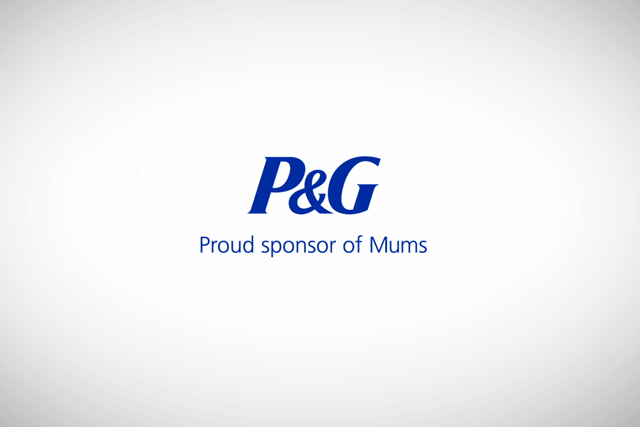
Procter & Gamble (P&G) is adamant that consumers care about its corporate brand. The FMCG power-house has just launched its first consumer-facing corporate ads in the UK, with a campaign leading up to the London 2012 Olympics declaring it to be 'Proud sponsor of mums'.
The campaign, timed to coincide with Mother's Day on Sunday, plays on the idea that mums are often in the background - 'never the focus but always there'.
Although it is difficult to liken a multinational company that owns such brands as Ariel and Duracell to a mum, the comparison it is trying to draw is clear: consumers rely on P&G products, even if they do not know it.
P&G corporate marketing director Roisin Donnelly claims that purchase intent increases by up to 20% when consumers understand the connection between the company and its brands, and she is not alone in believing that there is a place for the corporate brand in consumers' lives.
Unilever put its logo on all its product advertising in 2009, while Reckitt Benckiser (RB) overhauled its branding in the same year as part of a strategy to raise its profile and position it as 'the power behind the power brands'.
As well as boosting consumer recognition, RB took its corporate activity a step further last week, putting its branding centre-stage in a major recruitment drive (see box below right). Its belief is that if the corporate brand is better known and understood by the public, young business-people are more likely to seek it out as a place to build a career.
A corporate campaign can particularly resonate for those companies that align their activities with a sense of 'social good', according to Jim Prior, chief executive of branding agency The Partners. 'In such cases, companies are right to promote their brand profile,' he says. 'People want to hear it and it's a story that the leaders of these organisations want to tell.'
While it might be easy to dismiss the idea that consumers care about the company behind their chosen brand of bleach, and put such campaigns down to vanity marketing by the companies concerned, there is a benefit to coming out from behind the corporate curtain.
'Companies are wising up to the fact that, underneath the unhelpful term "corporate", there is a powerfully simple principle that can drive measurable financial return,' says Rachel Barrie, director of strategy at ad agency Fallon, who worked on the Unilever corporate brief in 2009. 'Put simply: people want to know who they are doing business with.'
Q: Why do you advertise your corporate brand?
A: Consumers want to be informed
Roisin Donnelly, Corporate marketing director, Procter & Gamble UK & Ireland
Nearly every UK household has at least one P&G product, but the average household has more than five. P&G's global partnership with the International Olympic Committee for the next five Olympic Games provides a great opportunity to talk to consumers about P&G and what we stand for.
The strategy behind this work is very clear: our campaign is all about our consumers. We know from the US how well received our 'Proud sponsor of mums' campaign can be. Our sponsorship of the 2010 Vancouver Winter Olympics delivered an estimated $100m in incremental sales.
This is also about responding to a consumer desire to be informed about products they buy and the companies that make them.
A: To boost public awareness
Matt Close, Vice-president, marketing, home and personal care, Unilever UK and Ireland
Our research says that consumers are increasingly interested in the 'names behind the names', are increasingly marketing-literate and marketing-savvy, and know that there are people who are behind brands.
We wanted to make sure that consumers could identify us as Unilever and, because our brands are household names, they would start to associate all of our brands with Unilever.
(Since introducing the logo to individual product campaigns), our metrics say we have had an impact. We have grown consumers' spontaneous awareness of Unilever by 50%, and more people know us and our name now than ever before.
A: It helps recruitment
Andraea Dawson-Shepherd, Senior vice-president, global corporate communication and affairs, Reckitt Benckiser
Historically, we have always let product brands take the limelight, while we have been pretty silent behind them. We are now focused on the corporate brand and have launched a significant step up in the corporate campaign across several important countries.
Our corporate brand campaign is focused on recruitment and we want people to think about whether we could be the right place to work.
The campaign is not about adding to the (awareness of our) product brands, as they do well enough on their own. This is about selling the company in a targeted way. We are growing awareness among people in their 20s and 30s, who make up the future talent pipeline.

